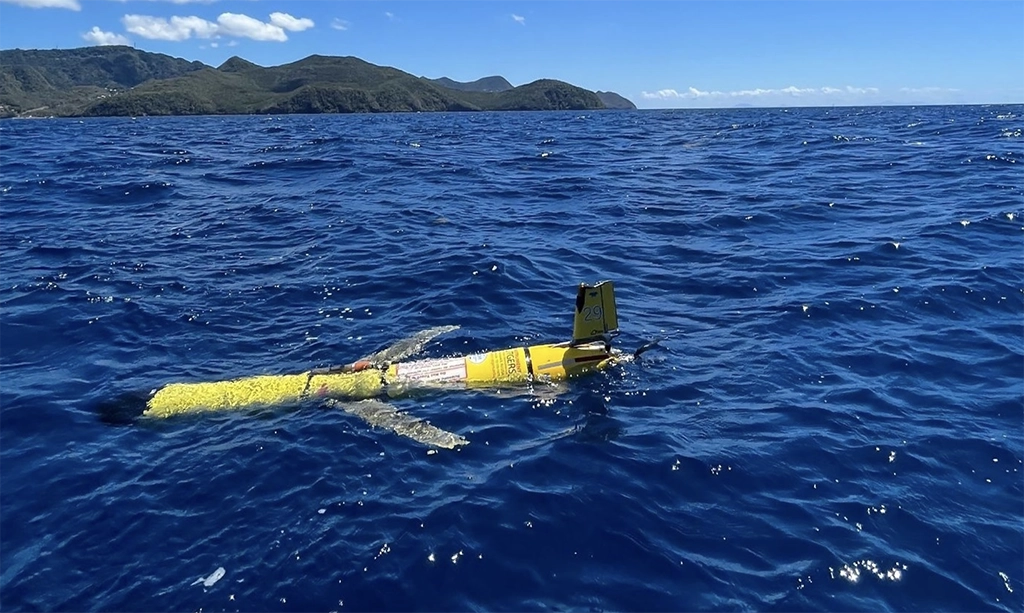Rutgers University Center for Ocean Observing Leadership (RUCOOL) has been awarded a $250,000 gift from the G. Unger Vetlesen Foundation to support climate, weather and ecosystem research and capacity building in the Caribbean Sea.
“The G. Unger Vetlesen Foundation has been an invaluable supporter of Rutgers and the Department of Marine and Coastal Sciences (DMCS) in the development of glider technology to conduct long range ocean exploration and filling data gaps critical to meeting the societal needs on a changing ocean planet,” said Distinguished Professor Oscar Schofield, chair of DMCS, and co-principal investigator on the project.
Other Rutgers investigators include Distinguished Professor Scott Glenn, assistant professor Travis Miles, and postdoc researcher Joseph Gradone, along with Douglas Wilson, director of the Ocean Glider Laboratory at the University of the Virgin Islands.
This is the 12th year of funding from the Vetlesen Foundation to RUCOOL, which has been at the forefront of global exploration and collaboration with international partners, including the circumnavigation of the North and South Atlantic, and cross ocean basin missions in the Indian Ocean with an underwater robot. The center’s efforts have not only driven new and innovative research. They’ve established a global network of gliderports and served as catalysts of science communication and story-telling for our ocean planet. This has included numerous short films and full length documentaries in locations including South Africa, Sri Lanka, the Virgin Islands and Martinique.
This new Vetlesen Foundation gift will continue to support Gradone’s work at RUCOOL.
“The foundation’s support has been pivotal in shaping my growth as a scientist throughout my doctoral research at Rutgers. It has enabled me to explore my intellectual curiosity of the Caribbean Sea’s role in global climate and enhance my teaching and communication skills through various community engagement initiatives,” said Gradone.
In addition, the gift will support autonomous underwater robot sampling of the Caribbean Sea between Puerto Rico and Curacao, with the goal of understanding the role of the Caribbean through-flow as a critical region for the Atlantic Meridional Overturning Circulation (AMOC).
The AMOC is a system of ocean currents that is commonly referred to as an “ocean conveyor belt” as it transports warm, salty surface waters from the tropics and South Atlantic to the North Atlantic, where they cool, become denser, and sink to the deep ocean, facilitating the redistribution of heat and regulation of climate.
Recent evidence has suggested that the AMOC, and its associated water properties, is changing, which has implications for regional weather, sea level rise, ecosystems, food security, and resilience.
Original article at Rutgers NJAES Newsroom

